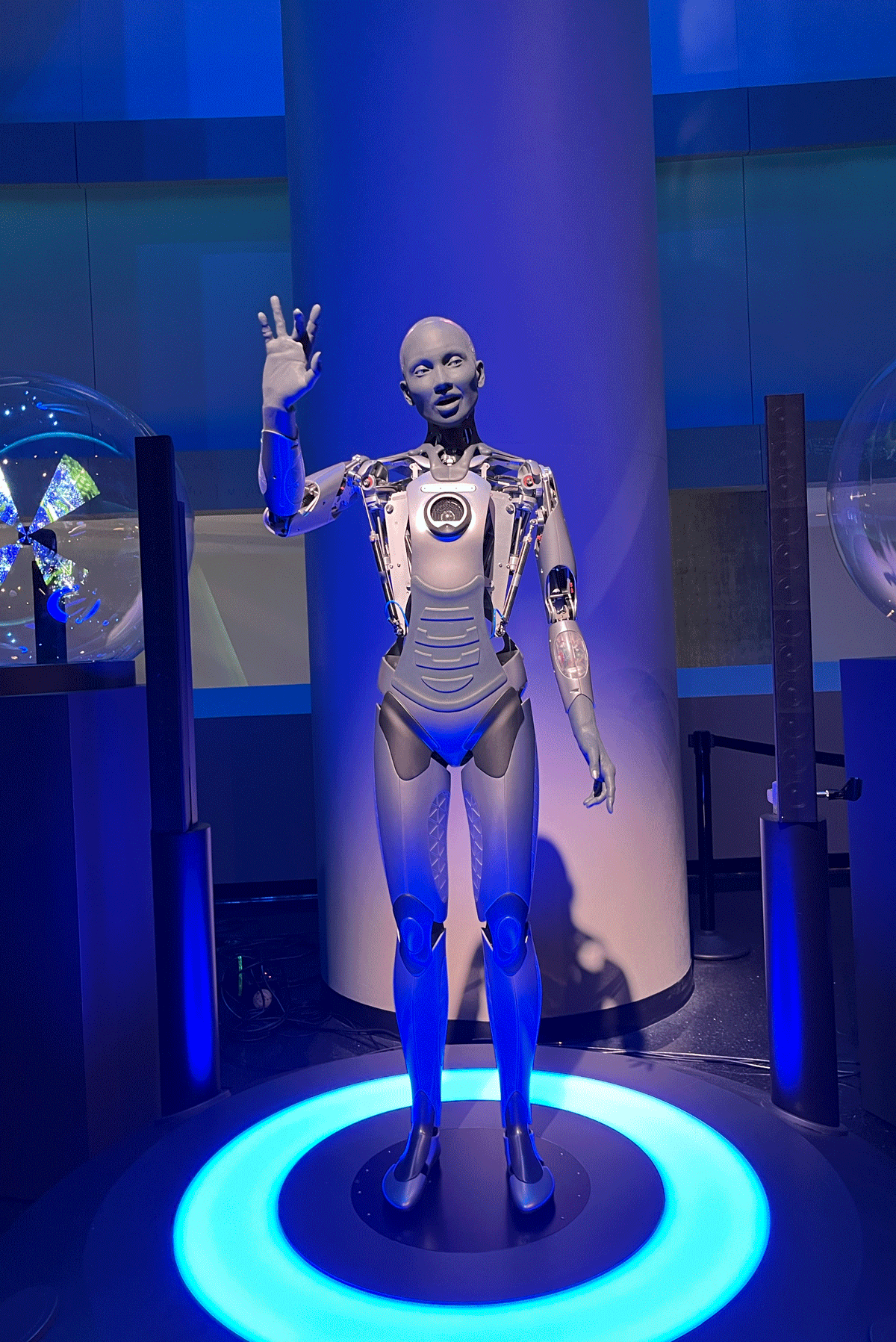AI and the job market
Artificial Intelligence (AI) is rapidly reshaping the job market. Amidst technological innovation, shifts in skill requirements, and new strategic demands for businesses, AI adoption has expanded well beyond the tech industry.
What are the impacts on the jobs of tomorrow?
The rise of open-source AI—championed by France during the AI Action Summit in Paris—aims to democratize access to AI while regulating its development and avoiding dominance by a few major players. This movement raises important questions about the future of work:
Which professions will be transformed or replaced? What new roles will emerge? How can companies adapt to this revolution?

(compared to 502 recorded in 2021)
(compared to 72% globally)
AI is progressively gaining ground among French businesses. In 2024, France had 1,000 AI-focused start-ups, a significant increase from 502 in 2021. These companies raised €1.4 billion in 2024, reflecting the sector’s rapid growth.
However, the adoption of AI technologies remains uneven. In 2024, fewer than half of French companies had invested in AI, compared to 72% globally.
An inevitable transformation of the labor market
The World Economic Forum’s Future of Jobs 2025 Report highlights a deep transformation of the labor market driven by AI and advanced technologies. According to the report, 22% of jobs will be directly impacted by AI by 2030, through partial or full automation.
Importantly, this impact isn’t limited to job losses: the current trajectory suggests 170 million new jobs will be created by the end of the decade, versus 92 million job losses, for a net gain of +78 million jobs. Growth sectors include new technologies, cybersecurity, renewable energy, and data analysis, along with essential fields such as healthcare, education, and agriculture.
Conversely, roles like administrative assistants, graphic designers, data analysts, and cashiers are identified as especially vulnerable to automation and generative AI. Data center operators may also see their responsibilities gradually replaced by autonomous infrastructure.
The Jobs of Tomorrow: What Roles Will Emerge?
AI’s rapid evolution is not just automating existing tasks—it’s also creating entirely new roles that didn’t exist just a few years ago. As AI becomes more accessible, new skill profiles will emerge, both in tech and in more traditional sectors.
We may see roles like AI ethicist, responsible for ensuring AI systems align with human values and ethical regulations, or data storyteller, whose mission is to translate raw AI-generated data into clear, actionable insights for decision-makers.
Cybersecurity will also be a major focus, with roles such as AI Security Officer becoming crucial to safeguard automated systems. At the same time, hybrid roles combining technical expertise with human-centered skills—like digital transformation facilitators—will be key to helping companies adopt AI solutions effectively.
In this shift, adaptability and upskilling will be essential for tomorrow’s professionals to navigate a job market in constant evolution.
An urgent need for upskilling
For businesses, the challenge is not just adopting AI, but ensuring skills evolve alongside it. Nearly 40% of today’s professional skills will need updating by 2030, and 59% of workers will require reskilling or further training.
63% of employers cite the skills gap as one of the main obstacles to transformation. To meet this challenge, a combination of technical skills (AI, Big Data, cybersecurity) and human skills (resilience, leadership, analytical thinking) is now essential.
AI: Job destroyer or driver of reskilling?
AI is seen both as a threat and an opportunity for employment. On one hand, 41% of employers anticipate job reductions due to automation. On the other, 77% of companies believe that upskilling and training are the best responses to the challenges ahead.
In response, the World Economic Forum advocates for coordinated action between businesses, governments, and educational institutions. Initiatives like the Reskilling Revolution, which aims to train one billion people by 2030, are vital to building a workforce equipped for the future.
Our role in supporting this transformation
In this fast-evolving landscape, companies must anticipate labor market shifts by adapting their recruitment strategies. Identifying talent capable of navigating this transition is now a strategic priority.
At Linman & Associés, we support our clients daily in structuring their teams by identifying profiles ready to adapt to the changes brought by AI. Far from being a mere technological shift, this transformation redefines business needs and calls for a deep rethinking of future skills. Our expertise enables us to guide this transition, aligning recruitment with the new demands of the job market and ensuring effective and lasting adaptation.
Sources :
- World Economic Forum, Future of Jobs 2025
- Trésor Économie, “AI at the heart of DG Trésor’s analysis,” tresor.economie.gouv.fr
- Le Monde Informatique, “AI will disrupt the job market,” lemondeinformatique.fr
- PwC France, AI Jobs Barometer 2024, pwc.fr
- HelloWorkplace, “AI and jobs: key figures,” helloworkplace.fr
- Le Monde, “AI Summit in Paris: ethical AI without the US and UK,” lemonde.fr